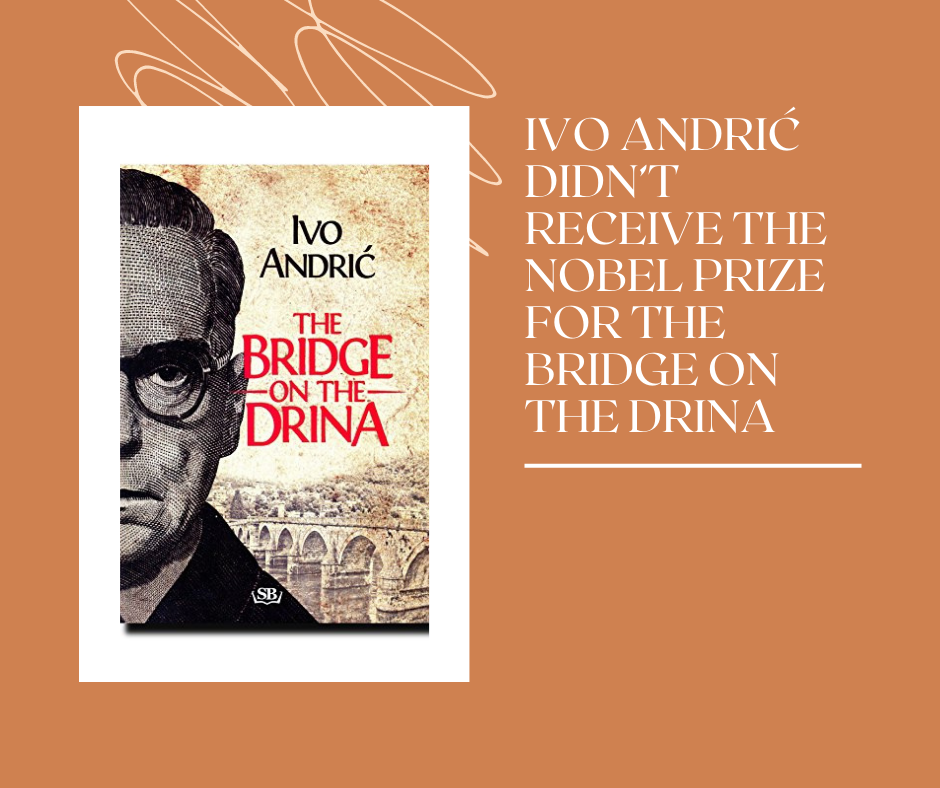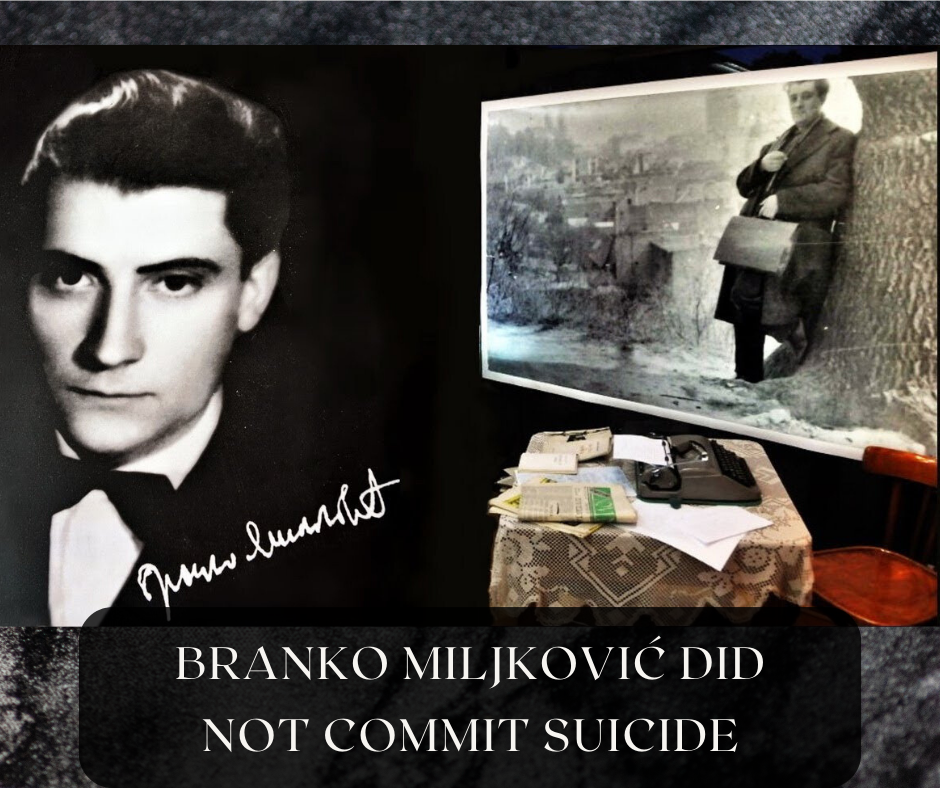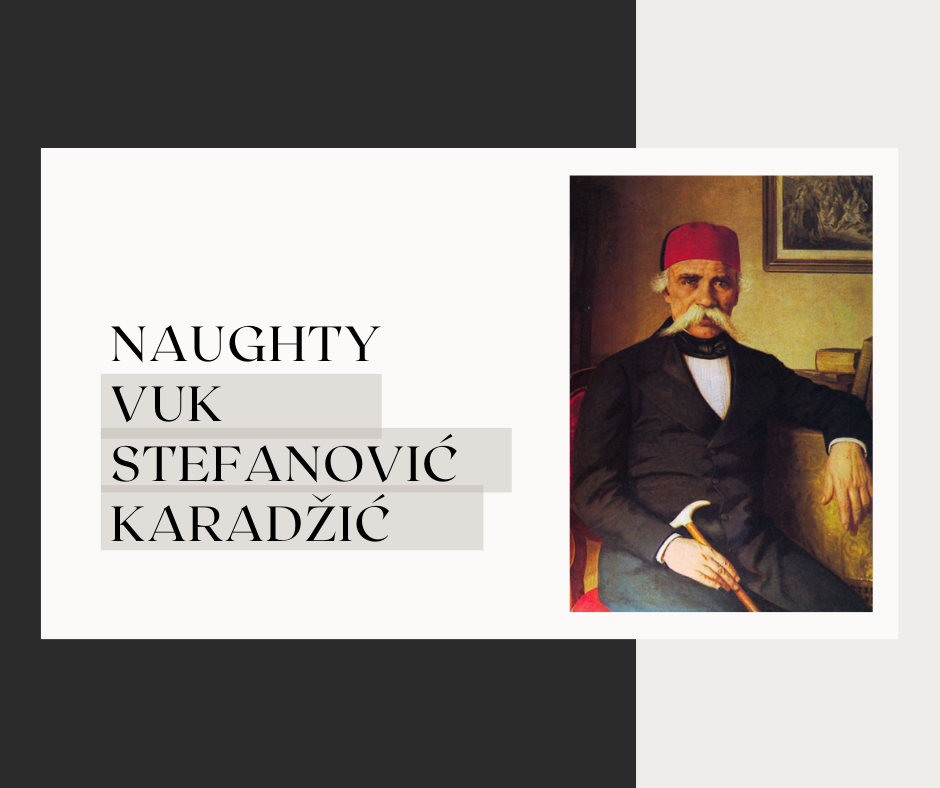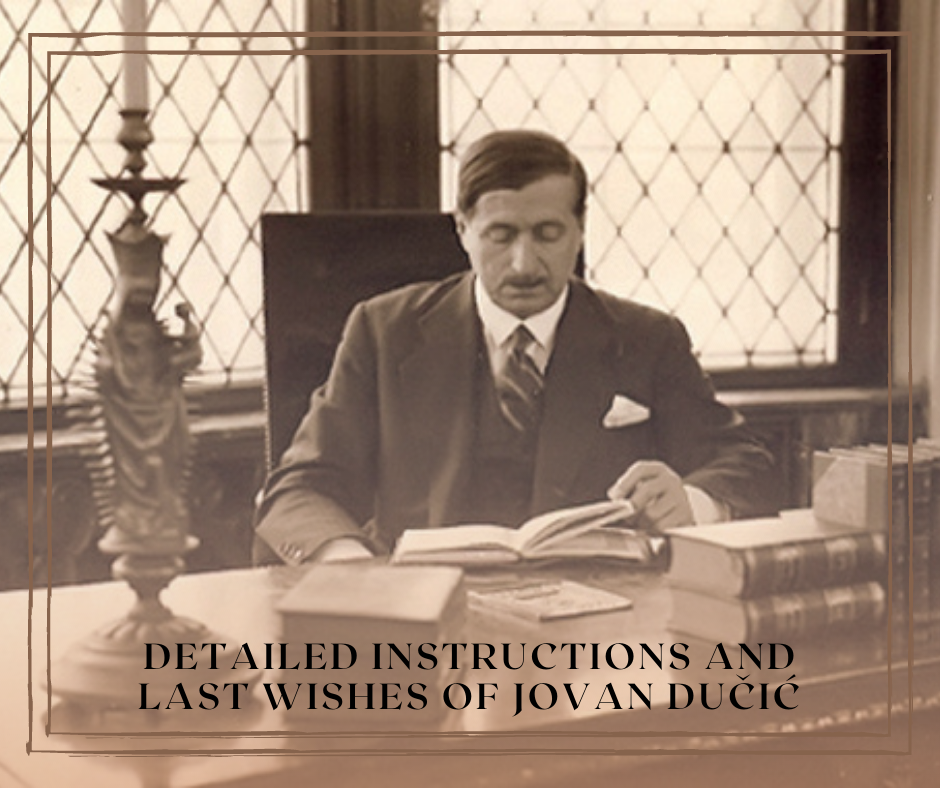Six Peculiarities About Serbian Writers

In the second episode of Yubiblioteka’s MythBuster edition (check out the first one here), we are turning up the volume and channeling our inner know-it-alls. Before you lie six peculiarities, fun facts, and misconceptions that we, Serbs, grew up never questioning, never doubting until the golden age of the Internet revealed everything.
You’ll see some of the greatest names in Serbian literature; poets, linguists, writers, and patriots. Who is your favorite?
1. Ivo Andrić didn’t receive the Nobel Prize for The Bridge on the Drina

When the Swedish Academy awarded Andrić the Nobel Prize for Literature in 1961, it wasn’t because of his most significant literary work. In fact, he received the Nobel for “the epic force with which he has traced themes and depicted human destinies drawn from his country’s history.”
He requested that “March on the Drina,” the famous Serbian patriotic song, be played during his acceptance and speech. He even carried the record with the song with him to Stockholm.
Ivo Andrić was honored for his entire literary opus and his immeasurable contribution to literature. Recently released documents revealed the other names in the category. Andrić was selected for the 1961 Nobel Prize in Literature over John Steinbeck, Robert Frost, and J.R.R. Tolkien. Talking about a literary powerhouse. The win ensured he got global recognition, after which his works continued to be reprinted and translated into more languages.
Ivo Andrić donated the entirety of his prize money (roughly one million dollars) to the development of libraries and the purchase of library books in Bosnia and Herzegovina.
2. Jovan Jovanović Zmaj was not named after a dragon
One of the greatest romanticists and children’s favorite poets, Jovan Jovanović Zmaj, is often associated with dragons. His nickname, Zmaj, translates to dragon, but believe it or not, there were no dragons in Serbia in the 19th century. Among other things, Zmaj was a magazine editor. In 1864, he started the satirical newspaper Zmaj after coming up with a clever play on words.

May 3rd was the day of the May Assembly (held on May 1st and 3rd, 1848), during which Serbia proclaimed the autonomy of Vojvodina from the Austrian Empire. So, it was kind of a big deal. When you write the date in Serbian Cyrillic, it looks like this: 3.Maj. The number 3 is somewhat similar to our Cyrillic letter Z, so when you combine the day and the month, you get zmaj (змај).
Okay, maybe this was not a very exciting discovery, but a peculiarity nonetheless. It may have been more fun to read about his dragonesque nickname instead of one totally political.
3. Branko Miljković did not commit suicide

In the fall of 1960, the most tragic Serbian poet, Branko Miljković, decided to leave Belgrade and move to Zagreb. While Andrić was enjoying his Nobel, Miljković was found hanging from a tree. This sinister incident was officially pronounced a suicide.
The background of the incident is even more sinister. Miljković left Belgrade due to highly belligerent political circumstances that forced him to renounce all his work. On his last night, he was seen in a kafana, drinking with his friends. The next morning, he was found hanging from a tree on a belt with his hat on top of his head. Witnesses heard shouting and screaming but were reluctant to investigate the dangerous neighborhood. The bruises on his body incited speculation. Some say he was killed by Croatian nationalists, others that they were political sycophants.
Branko Miljković was 27 when he died. His opus was rich in themes of death and loss, which he experienced personally during the Second World War. He was only ten when he witnessed the bombing of his city, hitting houses, churches, and schools. His most famous poem, Uzalud je budim (I wake her in vain), was inspired by the image of his young neighbor, Rose. He watched as they carried her away unconscious after the bombing. The girl never woke up, but Branko Miljković had found his muse.
A line from his poem “Epitaph,” Ubi me prejaka reč (I was killed by a word too strong), was engraved on his tomb.
4. Naughty Vuk Stefanović Karadžić

The man who changed the face of the Serbian language forever: Vuk Stefanović Karadžić was admired by the likes of Goethe and the Grimm brothers.
In September 1861, Karadžić was awarded the title of honorary citizen of the city of Zagreb. The charter handed to him was written in Serbian Cyrillic, which was a particular pain in the rear for the Croatian people. Croatia uses the Latin script exclusively, and any attempt to have them read or write something in the Cyrillic script is nothing short of blatant subversion. Many Croats called Vuk Karadžić a “Serbian chauvinist and proponent of the Great Serbian hegemony.” They accused him of trying to destroy the Croatian language and actively working on turning it into Serbian.
While shunned by our neighbors, the rest of Europe thought highly of the reformer of the Serbian language. He was elected a member of the Imperial Academy of Sciences in Berlin, Vienna, and St. Petersburg and welcomed into scientific circles in Moscow, Krakow, Göttingen, and Paris. The Russian and Habsburg emperors and the King of Prussia decorated Vuk Karadžić.
In 1818, his first dictionary was published, containing more than 26,000 words. Many among them were various names for male and female sexual organs. The “naughty” dictionary stirred a lot of trouble, and Vuk brought on some harsh criticism upon himself. When a woman condemned him once for using a lot of cuss words and inventive synonyms for penises and vaginas, Vuk Stefanović Karadžić, the brightest man of his time, responded: “Ma’am, out of 26,000 words in the dictionary, you’re upset by one d**k!”
5. Detailed instructions and last wishes of Jovan Dučić

The Second World War found Jovan Dučić in Madrid, where he served as a royal consular representative. From Spain, Dučić fled to the US, to Gary, Indiana, without knowing he would never see Europe nor Serbia. He died in April 1943 and was temporarily buried in the monastery of Saint Sava in Libertyville. His dying wish was to be reunited with his homeland in death.
In fact, Jovan Dučić had three dying wishes, written in three different wills.
He wrote his first one in 1930. It says:
“In the event that I die outside of Trebinje, the place of my birth, I want my mortal remains
to be transferred to Trebinje. The grave should be walled in and paved with concrete,
and instead of a monument, I want a large block of black granite on my tomb, with nothing
else written on it but the name: Jovan Dučić, the poet.”
Five years later, he wrote the second will.
“I should be buried in Trebinje immediately after I die, in a tomb I will build myself beforehand,
but by no means would I want to be buried in a cemetery, but on top of a small hill
with a large piece of granite from Jablanica (60 cm high, 1.20 m wide, and 2.5 m long) with
a single engraved inscription: Jovan Dučić, the poet.”
He wrote his last will in 1941, while the world was on fire. The poet requested that his inheritance be divided into two equal parts: one to support the work of the Serbian cultural and artistic society in Sarajevo, and the other to be used for the construction of an Orthodox church in his hometown, Trebinje, to stylistically resemble Gračanica. He also wished for his remains to be transferred there after the church was built.
Thanks to the benefactor and compatriot from Chicago, Branko Tupanjac, and his more than a generous investment of 2.5 million dollars, Hercegovačka Gračanica was built. 57 years after his death, in 2000, the church was constructed on a hill above Trebinje, and dedicated to the Virgin Mary and the great Serbian poet, diplomat, and patriot, Jovan Dučić.
“Branko was the one, and the first one, who created joy so that, thanks to him,
our youth, student life, love, and youth, in general, became one with us,
the poetic part of life recognized and admired by everyone.”
—Miloš Crnjanski
6. As I thought of dying

Let’s finish this fun list with another tragic poet.
He was born on the eve of Saint Alexius of Rome and baptized in the saint’s name. However, when he found himself in Vienna, he translated his name from Greek (Alexsios, he who defends) and gave himself the Serbian counterpart (Branko from braniti, to defend). His father, Teodor, wrote fables and poems—albeit unsuccessfully—and translated and published Schiller’s William Tell and Don Juan.
Branko Radičević learned about the language, poetry, and Romanticism from the very best. He became a close friend and protege of none other than Vuk Stefanović Karadžić, and after meeting his daughter, Mina, his son-in-law. His great desire was to travel, visit Africa, and see the Nile. He dreamed of studying art and painting in Italy. He had often written about his intention to visit Kosovo and write an epic similar to Homer’s Iliad about the place of Serbian glory and demise.
In 1853, Radičević died from tuberculosis in a private hospital in Vienna, in the arms of Karadžić’s wife, Ana. He was only 29. He wrote one of his most famous poems, the foreboding Kad mlidijah umreti (As I thought of dying), in 1845, but it wasn’t published until 1862. The motif of death followed him throughout his work and his life. Family tragedies—his brother died as a young university student—instilled in him the sinister portent of dying at an early age.
“Lisje žuti veće po drveću,
Lisje žuti dole veće poda,
Zelenoga više ja nikada
Videti neću!”
Branko Miljković, the poet who died at 27, was named after Branko Radičević, the poet who died at 29. Reality is often weirder than fiction.
Truly yours,
Vanja
